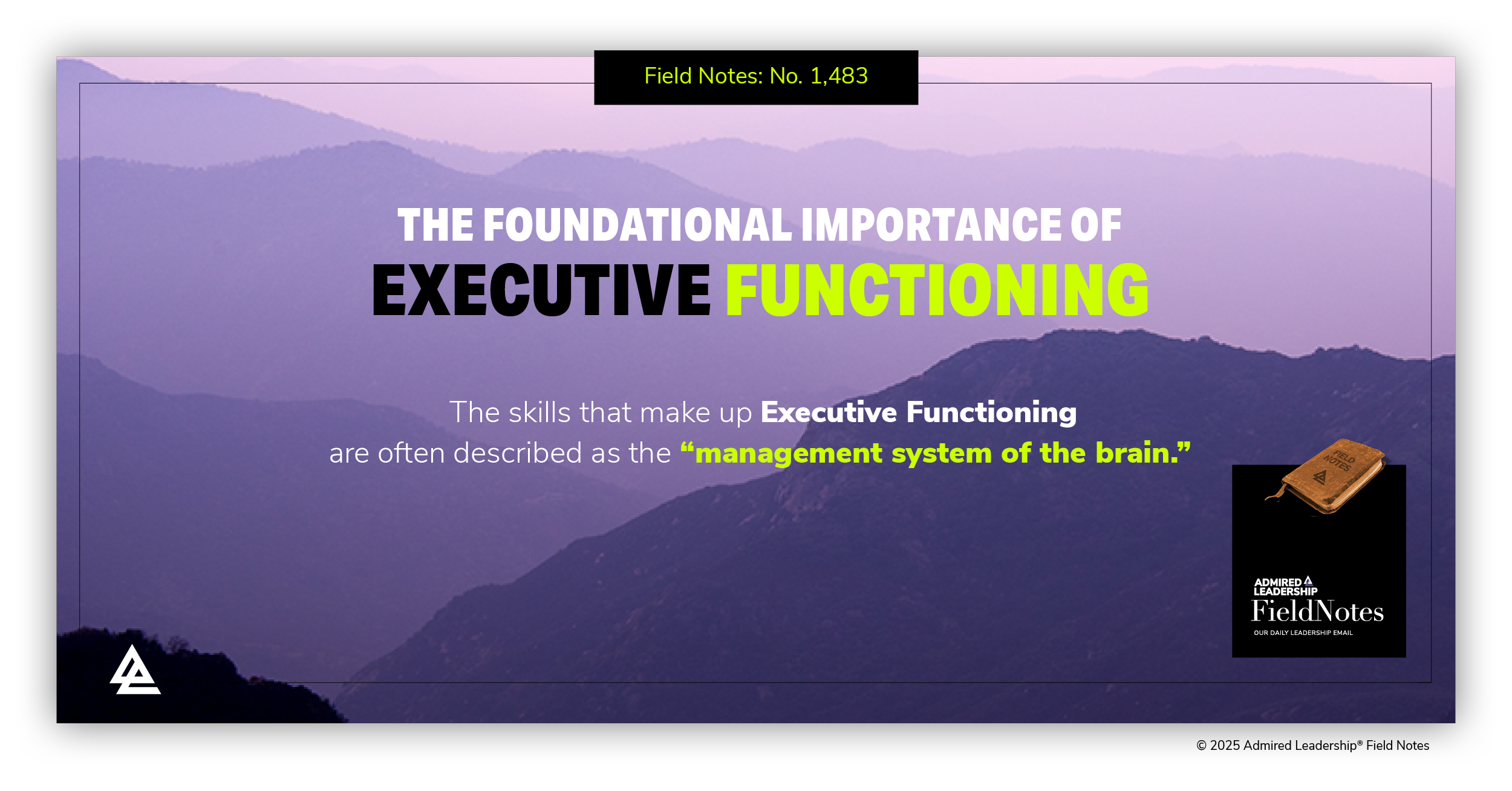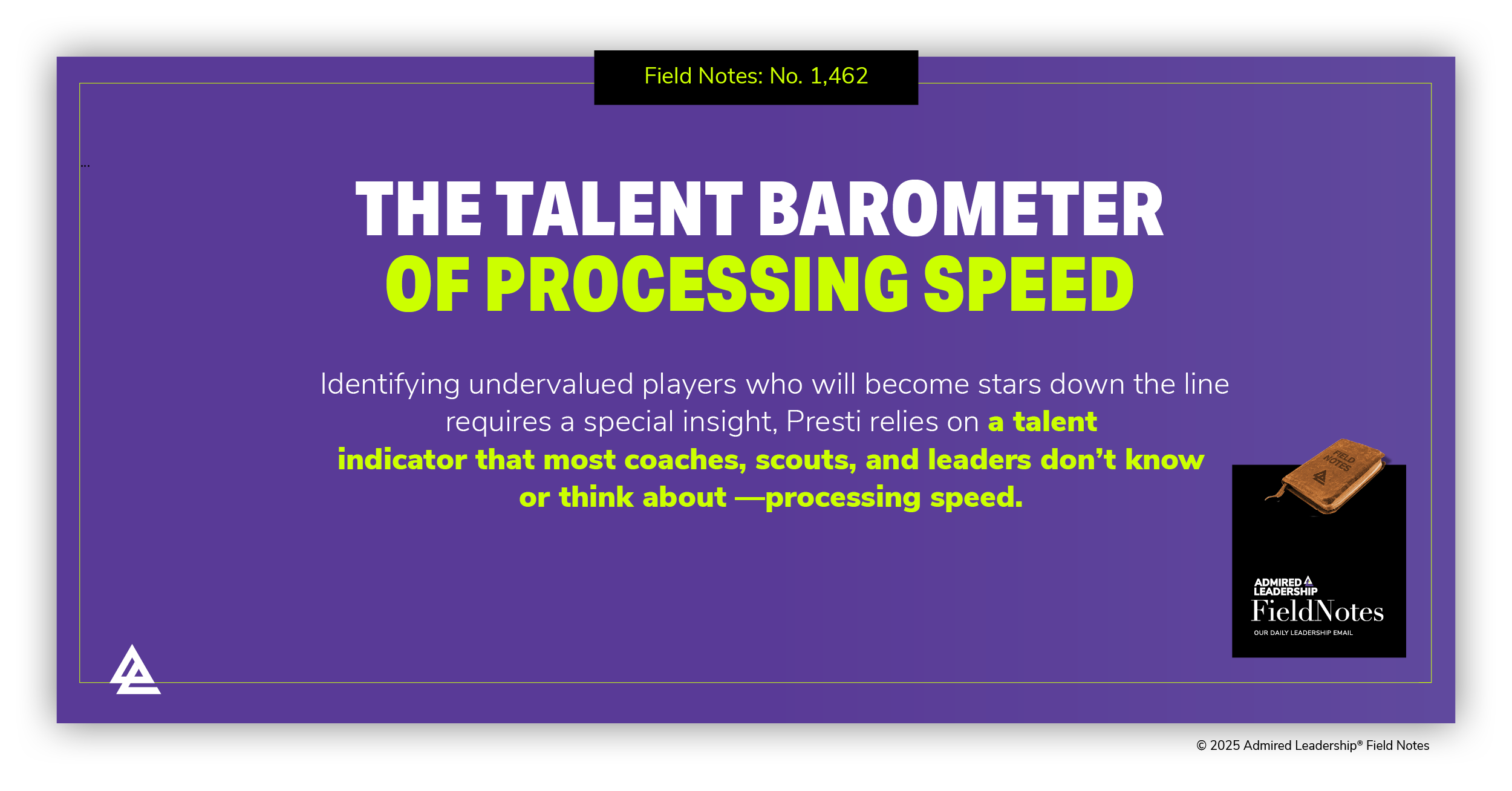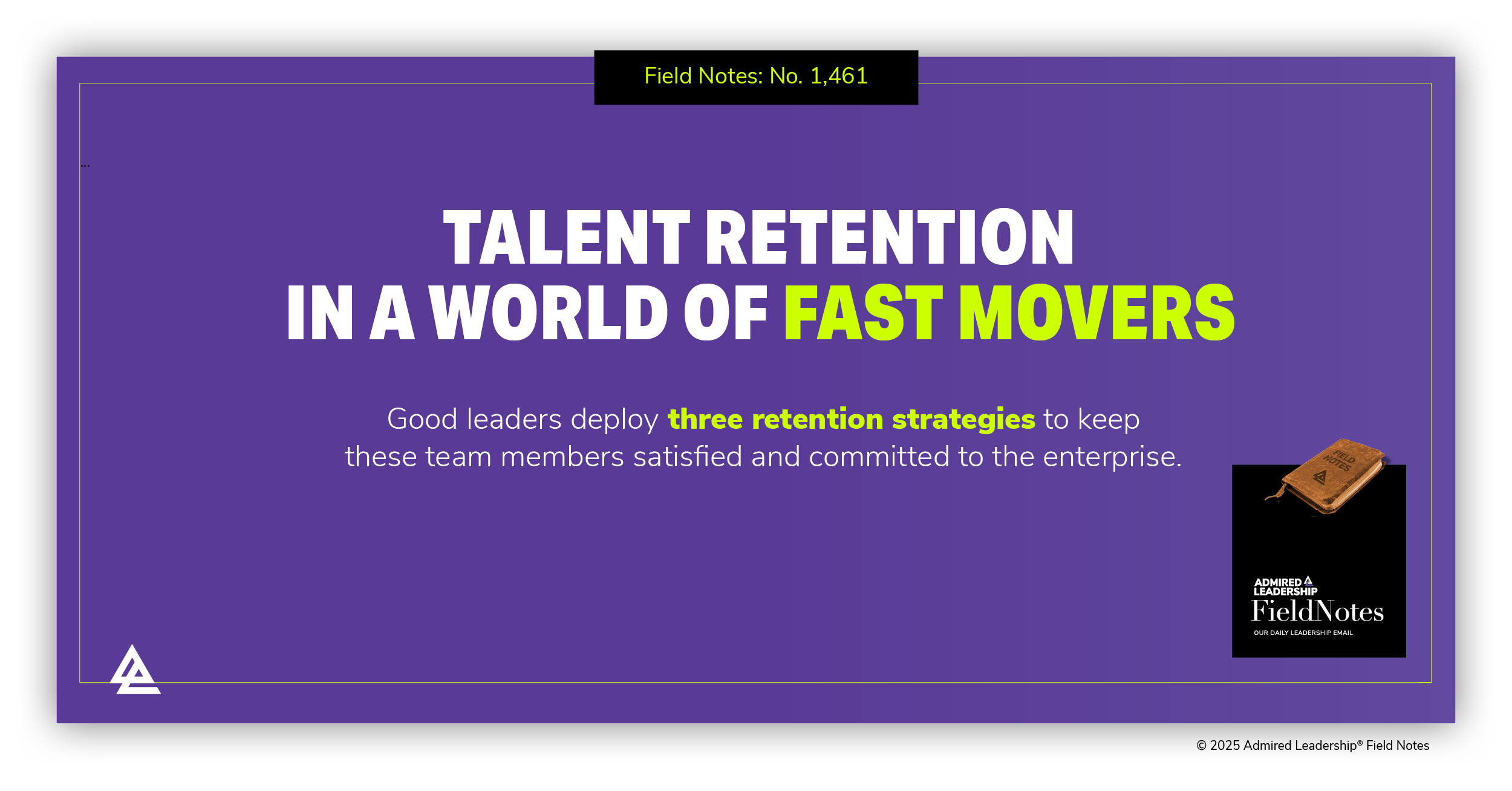Field notes
Field Notes
Our daily Field Notes email is just the kind of jumpstart you need. A fast read. Maybe less than a minute. Because sometimes it just takes one insight to change the trajectory of the day.
Search Field Notes
Executive Functioning refers to higher-level cognitive skills that allow people to manage their thoughts, actions, and emotions to achieve goals. Not surprisingly, those with strong Executive Functioning are better able to adapt to new situations and solve problems they have never encountered before.
Good leaders encourage team members to speak their minds and disagree when they feel it is important to do so. But even with the most open and receptive leaders, team members must follow a commonsense protocol to avoid ruffling feathers or creating ill will.
This age-old formula is worth articulating now and again. Here are the six core ground rules:
Rule One: Do it in private.
As organizations and teams grow and add more people, it is easy to lose the camaraderie and personal connection between team members. More remote work, people working in different locations, and the fast pace of concentrated tasks all contribute to the loss of what a small and tight-knit culture feels like.
“In order to be exceptional, you have to be an exception.” So says NBA executive Sam Presti. Presti, the general manager of the Oklahoma City Thunder, would know. Over the last decade, Presti has traded for and drafted unheralded players who later became superstars. He has an eye for talent, especially for those players who have yet to develop into something special.
Leaders and team members no longer stay in the same seats for very long. They change jobs or roles on average every four years or so. For teams that depend on stability, that’s a lot of movement.
When most of those changes are a function of promotion or increased responsibility, organizations thrive. But when leaders and team members leave the enterprise for other pastures, high performance is difficult to achieve and sustain.
Performers of every kind know they are valued when those they perform for refer them and their work to others. The highest endorsement any performer can receive is to have an audience share the competence they’ve witnessed firsthand with those who trust them. Many businesses and enterprises rely on referrals to grow and expand. For those organizations, generating more referrals can position them for even greater success.
Setting personal long-term goals and pursuing a personal mission are worlds apart. Whereas goals are specific, measurable, and outcome-focused, a mission defines the core purpose that remains unchanging and always present. Think of a mission as the reason for existence and goals as targets to achieve.






